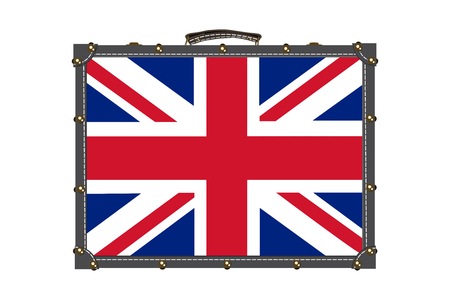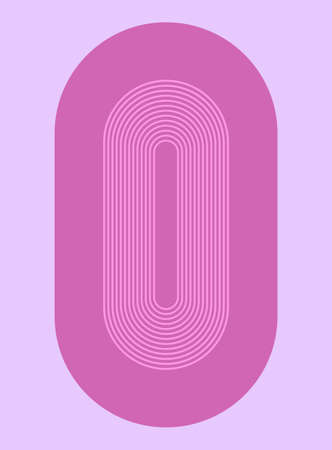Introduction to The World Card
The World card, the final Major Arcana in the Tarot deck, stands as a powerful symbol of completion, wholeness, and accomplishment. Traditionally depicted with a dancing figure encircled by a laurel wreath, The World signifies the successful conclusion of a journey or phase, embodying harmony and unity. In esoteric traditions, this card represents the integration of lessons learned and the attainment of enlightenment, often considered the ultimate goal for spiritual seekers. Popularly, The World is associated with travel, personal fulfilment, and the realisation of long-held ambitions—motifs that resonate universally yet manifest uniquely within different cultural contexts. Within British society, where notions of achievement are often tied to both personal milestones and broader societal contributions, The World card offers an apt lens through which to examine what it means to truly ‘arrive’ at one’s destination, be it literal or metaphorical. As such, The World bridges the mystical with the everyday, inviting reflection on how we define and celebrate our own sense of fulfilment.
2. Completion and Wholeness: The Core Message
The World card, often seen as the final card of the Major Arcana in tarot, is fundamentally about completion and the attainment of wholeness. Its symbolism transcends simple endings, embodying a profound sense of fulfilment that resonates deeply within British culture—a society that prizes both individual accomplishment and collective closure. In the UK, achievement is frequently measured not only by reaching personal milestones but also by how gracefully one concludes chapters, whether in education, career, or personal growth.
British sensibilities around success often emphasise humility and quiet satisfaction over overt celebration. This aligns closely with The World card’s message: true fulfilment comes from internal acknowledgement rather than external validation. For many in Britain, completing a project or journey is less about public acclaim and more about an inner sense of having ‘done one’s bit’—a phrase deeply rooted in British wartime spirit and community ethos.
To better understand how The World card’s core themes map onto British attitudes towards achievement and closure, consider the following table:
| The World Card Symbolism | British Cultural Perspective |
|---|---|
| Completion of cycles | Value placed on seeing commitments through to the end (e.g., “stiff upper lip”) |
| Sense of wholeness | Balanced approach to work and life; pride in well-roundedness (“jack of all trades” as a compliment) |
| Fulfilment from within | Preference for modesty; self-satisfaction over showmanship (“no need to shout about it”) |
| Integration of experiences | Cultural appreciation for learning from diverse experiences (“travel broadens the mind”) |
| Closure with grace | Emphasis on dignified farewells and respectful transitions (e.g., retirement traditions) |
This interplay between personal achievement and cultural values highlights why The World card resonates so strongly in a British context. Completion is not merely ticking boxes—it is about honouring process, embracing lessons learned, and moving forward with a quiet confidence that something meaningful has been accomplished. The World card thus serves as both a celebration of what has been achieved and an invitation to integrate those experiences into one’s ongoing journey.

3. The Theme of Travel: Literal and Metaphorical Journeys
The World card is inseparable from the notion of travel, a theme that has long resonated within British culture. On its surface, the card evokes images of physical exploration—globe-trotting, migration, and the classic British pastime of venturing beyond one’s familiar borders. Historically, Britons have embraced both the “Grand Tour” tradition among the upper classes and the working-class summer holiday at the seaside. In this way, travel becomes more than mere movement; it transforms into a rite of passage and a marker of personal development.
Physical Exploration: A British Tradition
Britain’s history is rich with explorers, from Captain Cook charting distant lands to today’s gap year students seeking adventure abroad. This national spirit of discovery aligns naturally with The World card’s energy: to complete a journey is not only to reach a destination but also to expand one’s horizons. Whether it’s the Lake District rambler or the urbanite navigating London’s labyrinthine streets, physical journeys mirror the card’s symbolism of achievement through movement and curiosity.
Metaphorical Journeys: Intellectual and Emotional Exploration
Yet The World card also invites us to consider travel in metaphorical terms—intellectual pursuits, emotional growth, and personal transformation. British literature is filled with such inward voyages, from Virginia Woolf’s explorations of consciousness to contemporary narratives of self-discovery. These journeys are about more than distance; they are about depth. In a society that values stoicism yet prizes eccentricity, such inner travels often lead to profound fulfilment.
Resonance with Modern British Attitudes
Today, travel—both literal and metaphorical—remains central to British identity. The rise in solo travel, cultural exchanges through education, and even digital nomadism reflect an ongoing quest for meaning and completion. The World card’s message is clear: whether crossing continents or confronting inner landscapes, each journey shapes our sense of wholeness. For Britons, this pursuit is often tinged with a blend of pragmatism and romantic idealism—a desire for experience tempered by the comfort of homecoming.
A Systemic View on Fulfilment Through Travel
Ultimately, The World card encourages us to see travel as both process and outcome—a system where each step builds towards completion. From the outward voyage to the inward reckoning, every journey contributes to a uniquely British sense of fulfilment: grounded in tradition yet open to transformation.
4. Fulfilment in British Culture: A Distinctive Outlook
The concept of fulfilment in the British context is layered with subtlety, tradition, and communal undertones that set it apart from more individualistic interpretations seen elsewhere. While the core themes of completion and achievement resonate universally—as symbolised by the World card in tarot—the British approach often intertwines personal success with societal contribution, understated satisfaction, and a keen sense of belonging.
Convergence and Divergence: Universal Versus British Fulfilment
Examining the alignment and divergence between British and global perspectives on fulfilment reveals both shared values and unique distinctions. For example, while reaching the end of a journey (literal or metaphorical) is globally associated with accomplishment, the British interpretation tends to emphasise the manner in which this journey is completed—often favouring modesty over grandiosity.
| Aspect | Global Perspective | British Nuance |
|---|---|---|
| Achievement | Celebrated openly; personal milestones highlighted | Modest celebration; focus on collective good and humility |
| Travel/Experience | Seen as self-discovery or adventure | Tied to broadening horizons, but also returning home (full circle) |
| Community | Community support as an add-on to personal success | Fulfilment often rooted in contributing to community wellbeing |
| Completion | Endings as triumphant conclusions | Job’s a good’un—a quiet satisfaction upon task completion |
Uniquely British Symbols and Idioms of Fulfilment
The language and imagery used to describe fulfilment in Britain reflect its distinctive cultural ethos. Phrases like “Bob’s your uncle” (meaning everything’s sorted), “job’s a good’un” (a task well done), or “over the moon” (extremely pleased) encapsulate understated pride in achievements. The tradition of raising a glass “to your good health” not only celebrates personal milestones but also underscores communal connections, echoing the inclusive spirit found within the World card’s symbolism.
The Role of Tradition and Rituals
Rituals such as afternoon tea or the village fête serve as both symbols and practices of collective fulfilment. They represent moments when individual contentment is intricately linked with shared experience—a dynamic that parallels the World card’s depiction of harmony within diversity.
A Subtle Yet Profound Approach to Completion
This nuanced outlook means that, for many Britons, fulfilment is less about loud declarations of success and more about a quietly satisfied sense of having played one’s part. In essence, British fulfilment is achieved not just through personal accomplishment but through contributing to something larger than oneself—be it family, community, or tradition. This perspective complements the holistic vision embodied by the World card, yet remains distinctly rooted in local idioms and customs.
5. The World Card in Contemporary British Life
The World card’s themes of completion, fulfilment, and global perspective resonate powerfully within the fabric of modern British society. As Britain navigates its post-Brexit identity, the idea of wholeness has taken on fresh significance—no longer just a personal milestone, but a national aspiration. In examining how contemporary Britons interpret success and accomplishment, we see a nuanced shift from traditional benchmarks towards more holistic values.
Redefining Success in a Modern Context
The classic markers of achievement—such as home ownership, stable employment, and upward social mobility—are increasingly being supplemented or even supplanted by pursuits centred on self-actualisation and meaningful experiences. The World card’s motif of travel is especially salient: British young professionals are far more likely today to prioritise seeing the world, either through gap years or extended working holidays, as a vital component of their personal growth. This mirrors the archetype’s encouragement to broaden horizons and seek interconnectedness beyond local confines.
Societal Values and Aspiration
British culture has always prized the ‘stiff upper lip’ and individual perseverance, yet there is growing recognition that collective wellbeing and global citizenship are equally integral to fulfilment. The World card’s message aligns with this evolving ethos; success is now often defined not just by solitary achievement but by one’s contribution to community and wider humanity. Volunteering abroad, participating in social enterprises, and engaging with diverse cultures are all seen as ways to complete oneself while enriching society at large.
The Evolving Notion of Fulfilment
Ultimately, The World card in contemporary Britain symbolises a synthesis of old and new values: the desire for closure and accomplishment persists, yet it is increasingly framed within an inclusive, outward-looking context. Britons today are redefining what it means to be ‘complete’—not merely through personal milestones but through journeys (both literal and metaphorical) that embrace diversity, adaptability, and global responsibility.
6. Practical Guidance: Embracing The World Card’s Lessons
The World card in Tarot, with its emphasis on completion, fulfilment, and new horizons, offers a wealth of practical wisdom for daily life—especially when considered through the lens of British culture. This section presents actionable advice rooted in British values and customs, helping you embody the card’s teachings in a grounded, culturally resonant manner.
Honouring Achievement: The British Way
In the UK, modesty often tempers celebration. However, recognising your accomplishments—no matter how quietly—is vital. Mark milestones with traditions such as a celebratory cup of tea or gathering loved ones for a Sunday roast. Taking time to pause and reflect, perhaps during a countryside walk or at your local pub, honours your journey while staying true to British sensibilities.
Embracing Travel and New Experiences
Travel is central to The World card’s symbolism. While grand adventures are inspiring, start small by exploring Britain’s diverse landscapes—whether it’s a city break in Edinburgh, hiking the Lake District, or visiting coastal towns like Brighton. These experiences broaden horizons without necessitating far-flung journeys, aligning with the British appreciation for both local heritage and global curiosity.
Cultivating Community Connections
The sense of collective achievement is strong in Britain, be it through volunteering, joining local clubs, or supporting neighbourhood events. Engage with your community as a way of sharing success and fostering belonging—key elements of fulfilment reflected in The World card.
Moving Forward Mindfully
Completion is not an end but a gateway. Channel the British spirit of resilience and adaptability by setting new goals once you’ve celebrated your achievements. Whether it’s pursuing further education through evening classes or taking up a new hobby like gardening or cycling, keep momentum while respecting the natural rhythms of progress.
Conclusion: Integrating The World Card Daily
Applying The World card’s lessons means balancing celebration with humility, embracing both travel and homegrown adventure, and valuing shared success. By weaving these principles into everyday life—from quiet reflection to active participation in local traditions—you can achieve a sense of fulfilment that is both universally meaningful and distinctly British.


